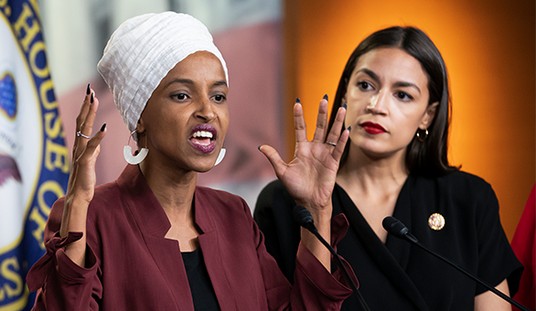Paul Harvey’s death Saturday did not garner major headlines or sustained attention. Matt Drudge had the related story link off his page within about 12 hours of when the news broke.
At one level, it’s not at all surprising. The man was 90. Though he soldiered on, he was past his peak. His vocal cord problems in 2001 and his bout with pneumonia in 2008 had America mentally prepared for the inevitable.
But those who are unfamiliar with Paul Harvey need to learn about more than his tremendous career success. They need to understand and recognize his significance. Coming within hours of Rush Limbaugh’s stemwinder of a speech at CPAC in Washington, we should not forget that in his heyday Harvey was in many ways what Limbaugh has often called himself: equal time.
To appreciate what Harvey pulled off, recall just how limited the media marketplace was in the 1950s, 1960s, and much of the 1970s. Two things shaped that media landscape: outlet scarcity and the so-called Fairness Doctrine. Each served journalists’ generally left-leaning agenda well.
Being a purveyor of news required a printing press or a broadcast license. The New York Times and the Washington Post largely drove national and international news coverage for U.S. consumption. The Associated Press and its very weak sister United Press International dominated original news-gathering. Though many metro papers leaned conservative, they were largely at the mercy of the wire services, the Times, and the Post for non-local news. The big three networks’ evening newscasts were for all practical purposes the only TV game in town.
Left-leaning media bias was occasionally obvious, as with Joe McCarthy’s anti-Communist crusade, the Vietnam War, and Watergate, but it was usually subtle (much of that subtlety ended after Watergate). Establishment media’s day-to-day bias was primarily in story and fact selection, not the outright opinion-as-news barrage we now endure almost daily.
The so-called Fairness Doctrine, which dates back to 1949, was an almost perfect companion to outlet scarcity. The broadcast networks could slant their stories and retain their immunity from the Doctrine’s mandate that “broadcast networks devote time to contrasting views on issues of public importance” by saying, “hey, we’re just objectively reporting the news” (uh-huh). The wires, the Times, and the Post were “of course” similarly untouchable. The conservative opinions of writers like Cal Thomas, Bill Buckley, and James Kilpatrick were relegated to local papers’ op-ed pages.
But Paul Harvey was there on the radio every day, with a larger audience as a percentage of the nation’s population than Limbaugh has ever had, disarming the Fairness Doctrine police with his patented “Stand by for news!” greeting. And indeed it was the news, only a slightly different rendition. He often emphasized different facts or brought out new ones that inevitably made you wonder, “Why haven’t I seen or heard that before?” And even if the story was the same, his tone gave you a good idea of what he thought of it and of the players in it.
Then there were his other stories.
Harvey’s frequent announcements of everyday Americans’ longtime wedding anniversaries reminded us that marriages — and love — do last. That included his own marriage; he called wife Lynne Harvey, a broadcasting pioneer in her own right, “Angel” so often that many thought it was her real name. His broadcast-wrapping jokes, often based on news stories, came from a time when we could still laugh at ourselves, were rooted in heartland values, were almost always genuinely funny, and were devoid of meanness.
His interspersed ads, which critics ignorantly claimed blurred the line between news and commercial content — what about verbally turning from “page one” to “page two” did these people not understand? — doubled as odes to American success, ingenuity, and even corporate nobility. Many of his ads included letters from listeners praising products he had recommended. Harvey’s satisfaction that he had helped a person improve his or her life, even in a small way, was genuine and unmistakable.
More than anyone on the air during that era, Paul Harvey was a profoundly grateful believer in America and free-enterprise capitalism in a world, a U.S. media environment, and all too often a government that thought the march of history was running against it. He didn’t buy it. He supported McCarthy, whom history has thoroughly vindicated over academics’ closed eyes and ears. Of course, the mainstream media obituaries are emphasizing that he came to oppose the Vietnam War, while failing to report that he later regretted his on-air opposition. Well, what human with any compassion wouldn’t have such regrets, given the results?
Tens of millions of Americans received their antidote to the dominant media narrative from Paul Harvey at a time when very few others were delivering it, or even could. If not for him, it’s likely that many of the millions now listening to Limbaugh, Hannity, and other talkers liberated by the Fairness Doctrine’s 1987 repeal would not have been on the AM dial to tune in.









Join the conversation as a VIP Member